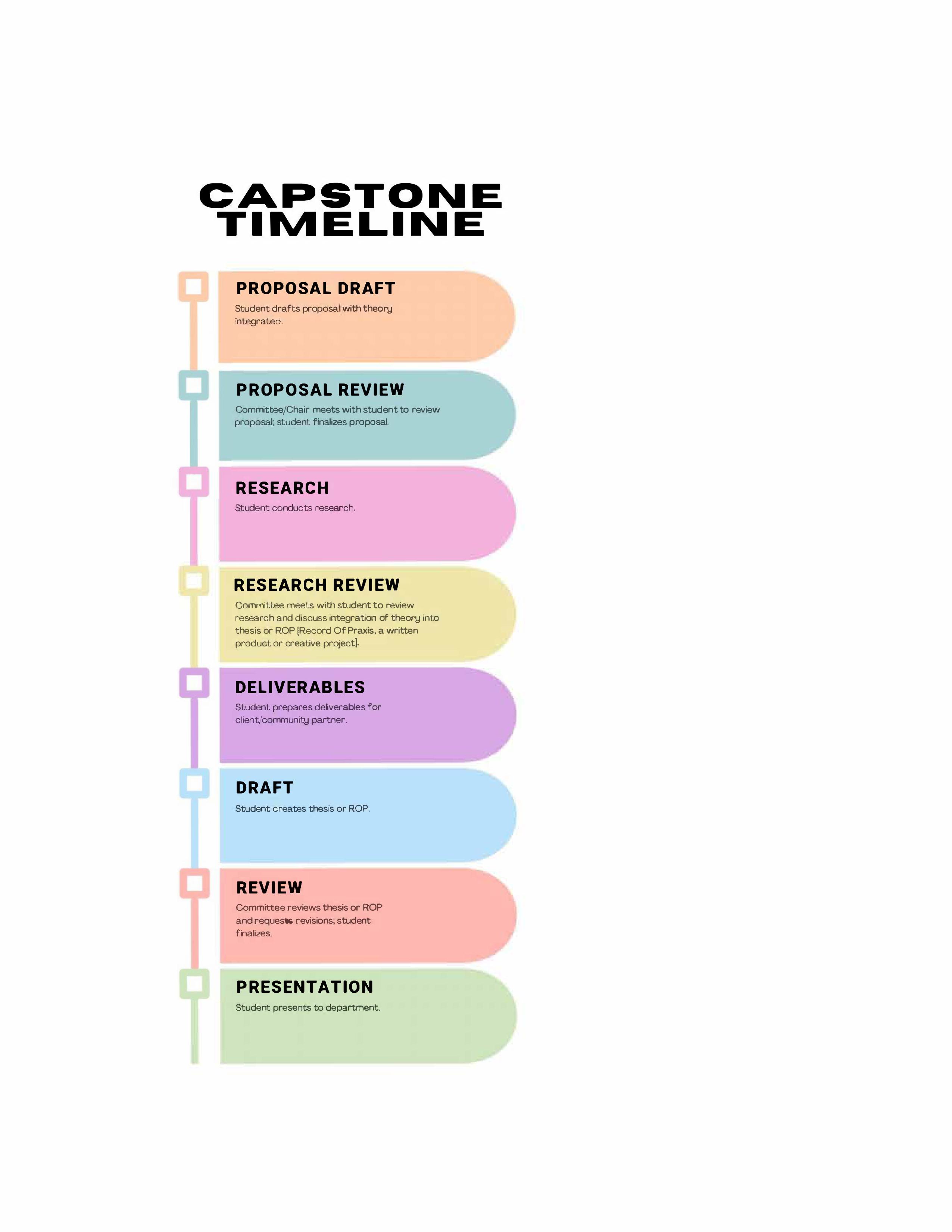The applied thesis/practicum project is the major independent project that students undertake in order to complete the master's in applied anthropology. It involves completing a significant research project that will be of practical benefit to some organization or agency. Students must design and carry out a project that utilizes the skills in applied anthropology that they gained through their master's program coursework. The project has two possible tracks, thesis or practicum, but otherwise follows the same research trajectory.

Pre-Research: Finding a client/community partner
Some students may conduct their projects for established practicing anthropologists in their field of interest. In other cases, clients or community partners will come from another background, but they will recognize the value that the perspective of applied anthropology can bring to their organization. Clients/community partners will generally hold advanced positions in their organization.
In many cases, students may choose to find an organization in the community in which they live. Some students who work full-time may choose to conduct their applied thesis for the organization that already employs them.
In conversation with the client/community organization and their committees, students will write a research proposal that addresses the background, theoretical approaches, deliverables, project design, timeline and costs of the research. Before starting research, students must receive approval from UNT’s IRB.
Post-Research: Deliverables and Presentation
Upon completion of research, students will meet with their committee to discuss their applications. All students will produce deliverables that benefit their selected client/community partner.
Students on the Thesis track will produce a written thesis (suggested length of 65-90 pages) consisting of an overview, literature review, project design, findings and deliverables, discussion and reflection, and references.
Students on the Practicum track will produce a ROP (record of praxis) that documents how they have integrated theory in their application.
All students will give a public presentation to the Department of Anthropology.
The key to a successful applied capstone experience is excellent three-way communication between the student, their faculty advisor, and their client. The department has a set of guidelines to assist everyone in building this triangular relationship. Students prepare for the applied thesis by taking ANTH 5050 Preparation for Capstone and Career.
The Dissertation and Thesis Manual provides definitive information on preparing your dissertation or thesis: https://tsgs.unt.edu/thesis-manual